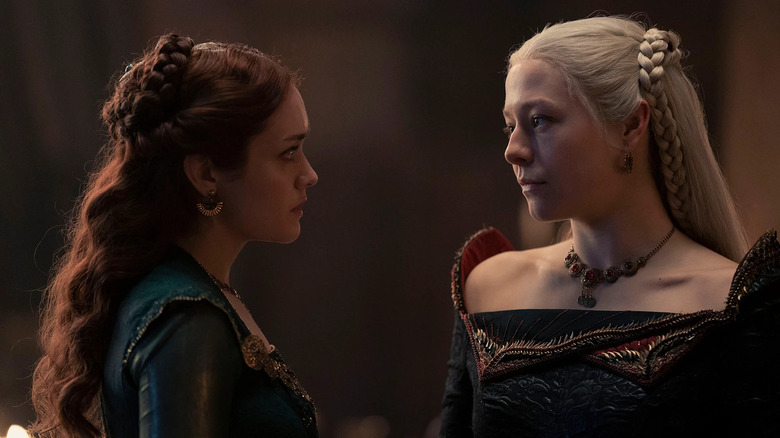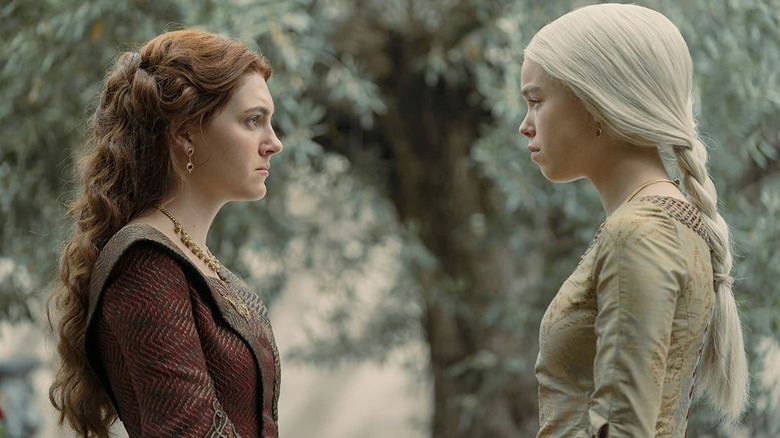How House Of The Dragon Season 1 Has Already Set Season 2 Up For Success
"House of the Dragon" managed to challenge expectations, shut up the naysayers, and deliver one of the best shows of the fall. In 10 episodes, it managed to make Westeros a believable place where you definitely don't want to live, but love to spend some time in week by week. The story is compelling and full of that sweet, sweet political scheming and backstabbing, has fantastic one-off characters, another winning score by Ramin Djawadi, and made splendid use of the titular dragons. More than anything, the show was smartly written, and it also had a tremendous cast that elevated the story and made us fall in love with even the most despicable characters.
And yet the biggest problem with "House of the Dragon" was that we didn't really get to spend time with the actors: just as you started to get to know them, or even memorized who was playing who, the cast changed. The show moved at a lightning-fast pace, not only trimming the fat but losing some of the meat of the story by introducing repeated time jumps that take away from the emotional highs of the story. Many shows have used the technique successfully, but "House of the Dragon" jumped ahead at pivotal times, making the audience miss the payoff to big moments and the ramifications of characters actions. Entire lives flashed before our eyes without ever getting to know them, and in some cases it felt like the show skipped an entire episode.
Thankfully, that is no longer a problem. Now that the showrunners promise not to change the entire cast in season 2, "House of the Dragon" has one big advantage as it continues its story.
Don't change what isn't broken
In an interview with The Hollywood Reporter, showrunner Ryan Condal talked about the ways the first season of "House of the Dragon" already sets up the next season for a relatively easier ride. Of course, there are the expected things like the crew being more familiar with the rhythm of the show and how to make a great season of television. But Condal also points out that season 2 has an easier task of telling the story without time jumps and with the same stellar cast.
"We have such an embarrassment of riches in terms of the great cast that we put together. The writing is so much easier because you're now writing for a this great cast [who we have now seen] embody these roles. They're three-dimensional characters and it makes their story so much easier to tell because they're already embodied and there's a joy in the writing because of that."
The thing about the time jumps in "House of the Dragon" is that they could have worked. "The Crown" is another multigenerational drama that spans several decades and also has time jumps, one per episode in fact. The difference is that we don't really notice them because every single episode works as a standalone story with a definitive ending rather than a cliffhanger without a payoff. When an episode about Charles and Diana courting ends, you get the sense that their story continued off screen, while still giving you a satisfactory ending to this particular chapter of their story. That show also changes their entire cast every two seasons, but by then, we see significant events end, and enough time passes that it makes sense for us to simply jump ahead to the next big crisis at a different point in their lives.
It would have been great to spend more time with Milly Alcock and Emily Carey, but at least it's comforting to know that "House of the Dragon" won't make us go through that cast-changing heartbreak again.

